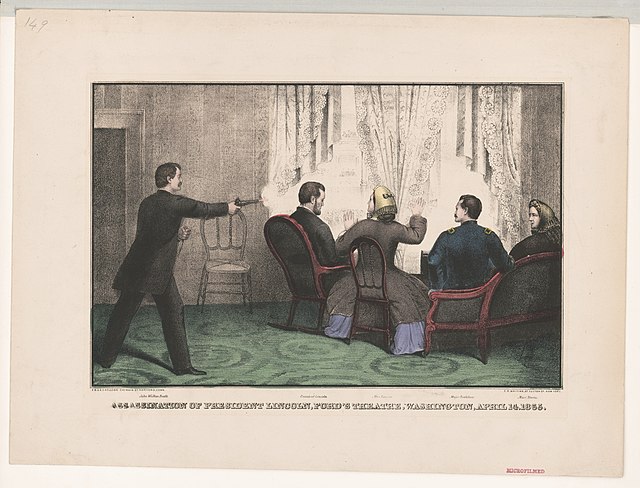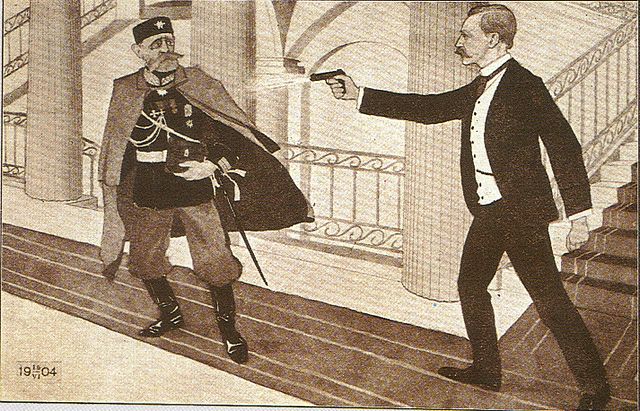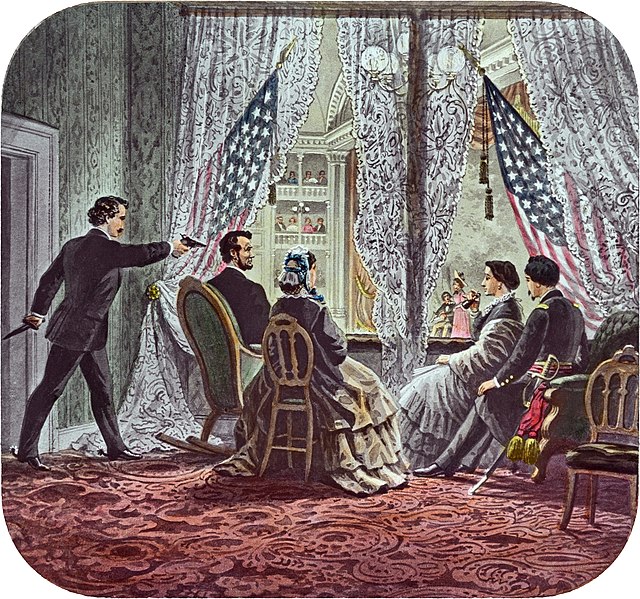Tyrannicide or tyrannomachia is the killing or assassination of a tyrant or unjust ruler, purportedly for the common good,
and usually by one of the tyrant's subjects. Tyrannicide was legally permitted and encouraged in Classical Greece. Often, the term "tyrant" was a justification for political murders by rivals, but in some exceptional cases students of Platonic philosophy risked their lives against tyrants. The killing of Clearchus of Heraclea in 353 BC by a cohort led by his own court philosopher is considered a sincere tyrannicide. A person who carries out a tyrannicide is also called a "tyrannicide".
Benjamin Franklin's suggestion for the Great Seal of the United States included the phrase "Rebellion to Tyrants is Obedience to God."
Statue of Harmodius and Aristogeiton
Assassination is the willful killing, by a sudden, secret, or planned attack, of a person—especially if prominent or important. It may be prompted by grievances, notoriety, financial, military, political or other motives. Many times governments and criminal groups order assassinations to be committed by their accomplices. Acts of assassination have been performed since ancient times. A person who carries out an assassination is called an assassin or hitman.
Scenario depicting the assassination of Abraham Lincoln.
Nikolay Bobrikov, the Russian Governor-General of Finland, assassinated by Eugen Schauman on June 16, 1904, in Helsinki. A drawing of the assassination by an unknown author.
Mugshot of Lee Harvey Oswald, the individual responsible for the assassination of United States President John F. Kennedy on November 22, 1963. Oswald himself was murdered two days later by Jack Ruby, the first such event to receive wide television coverage.
Shown in the presidential booth of Ford's Theatre, from left to right, are assassin John Wilkes Booth, Abraham Lincoln, Mary Todd Lincoln, Clara Harris and Henry Rathbone.






